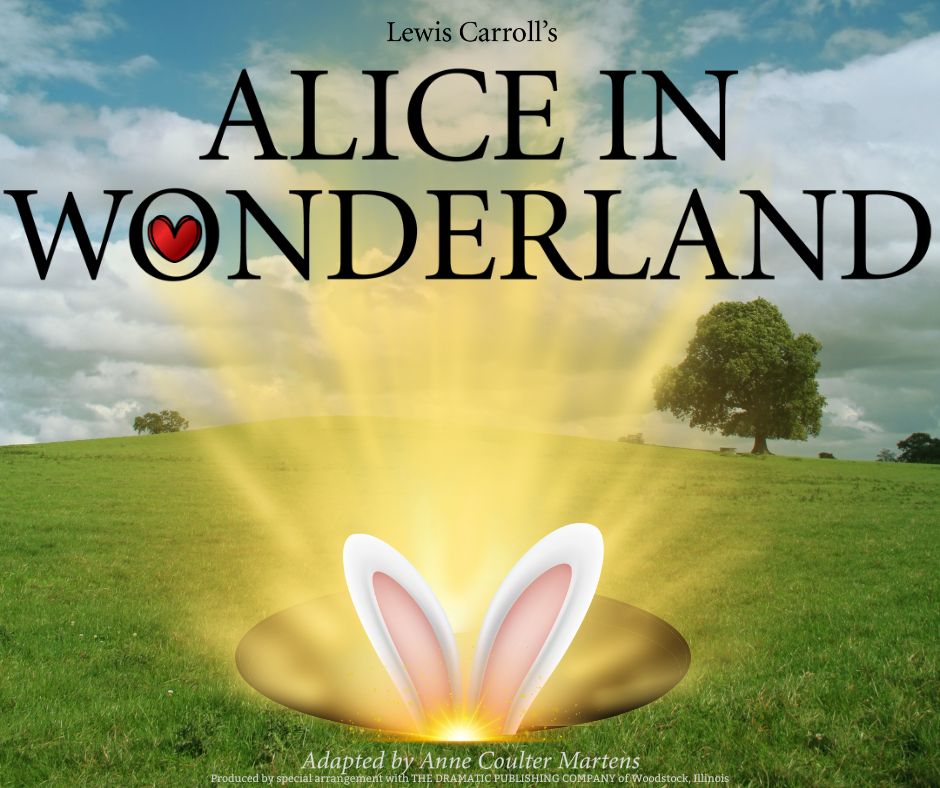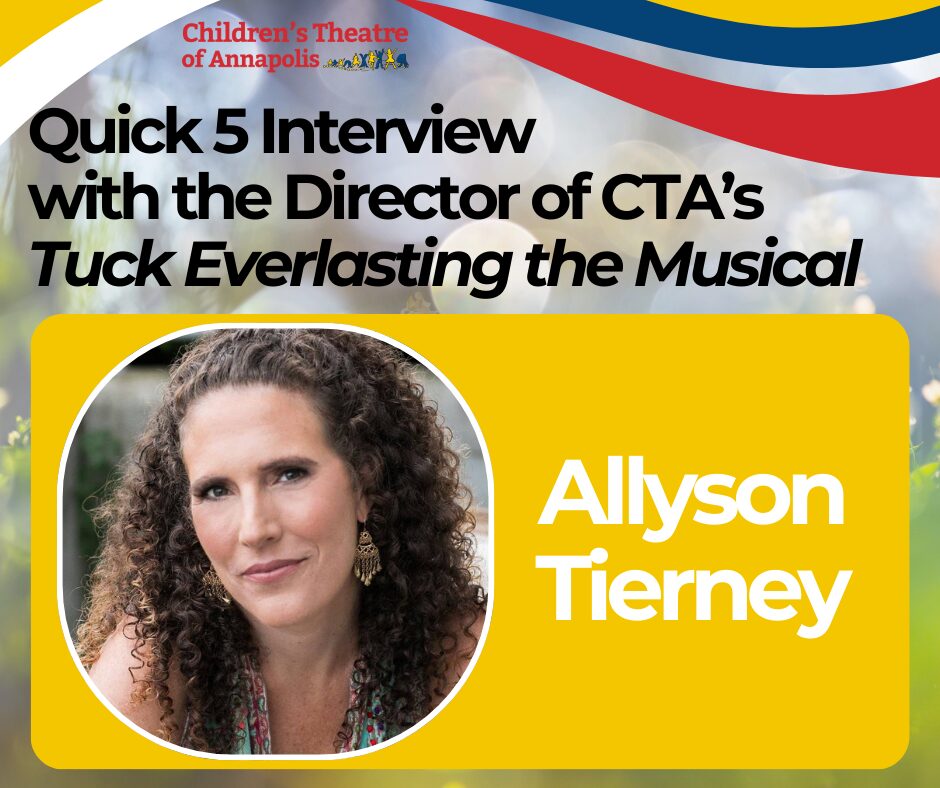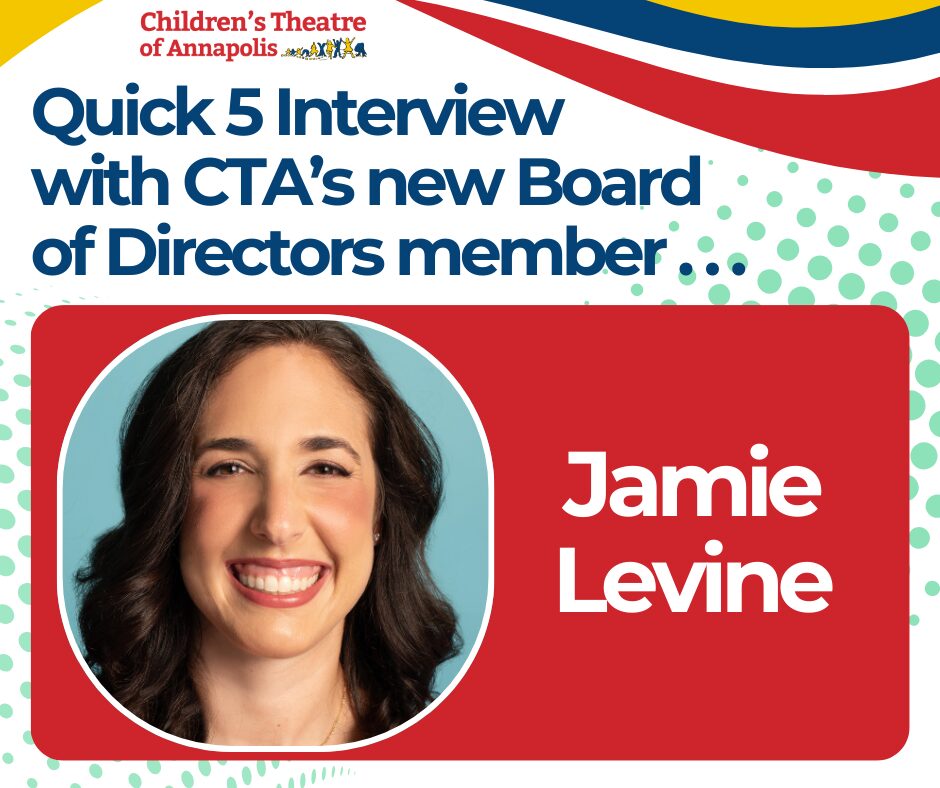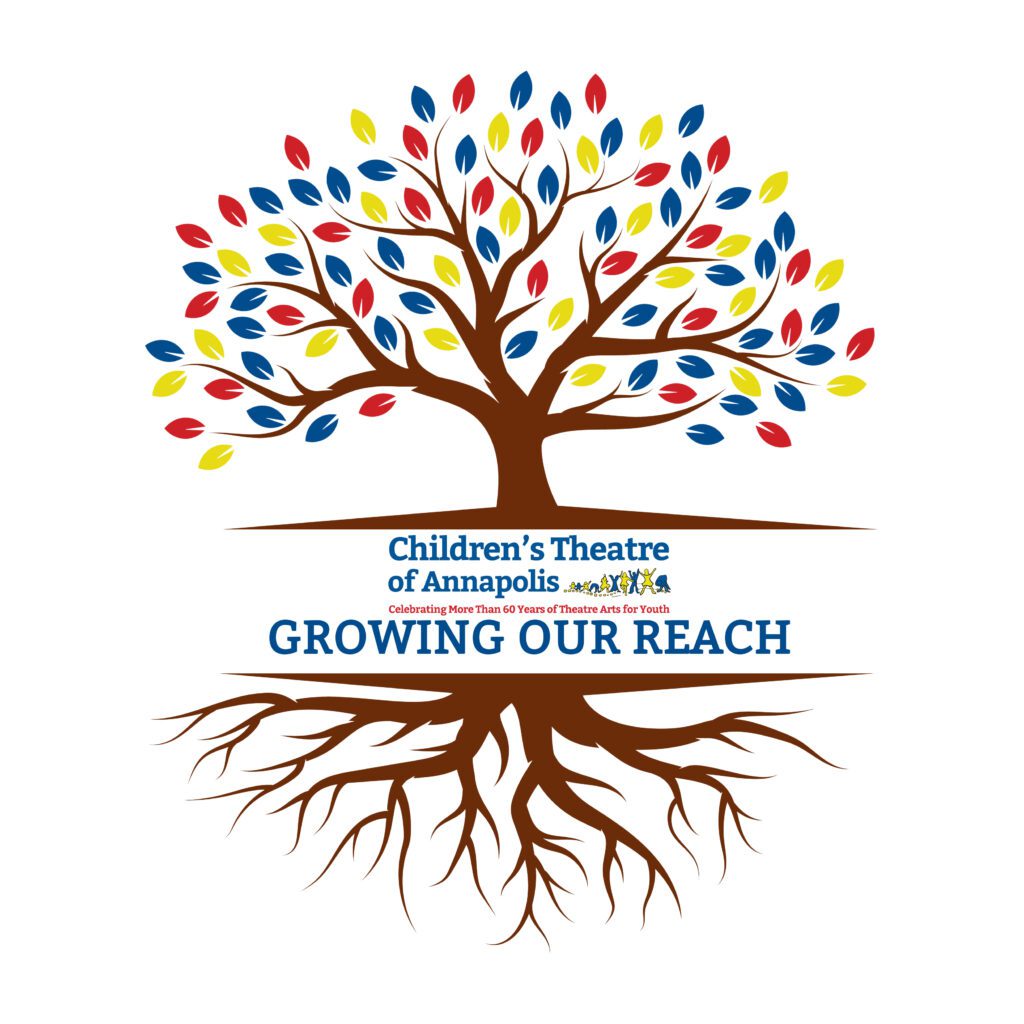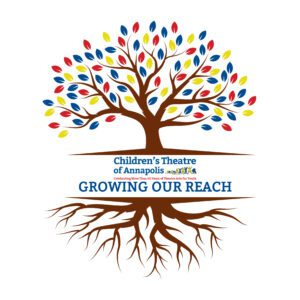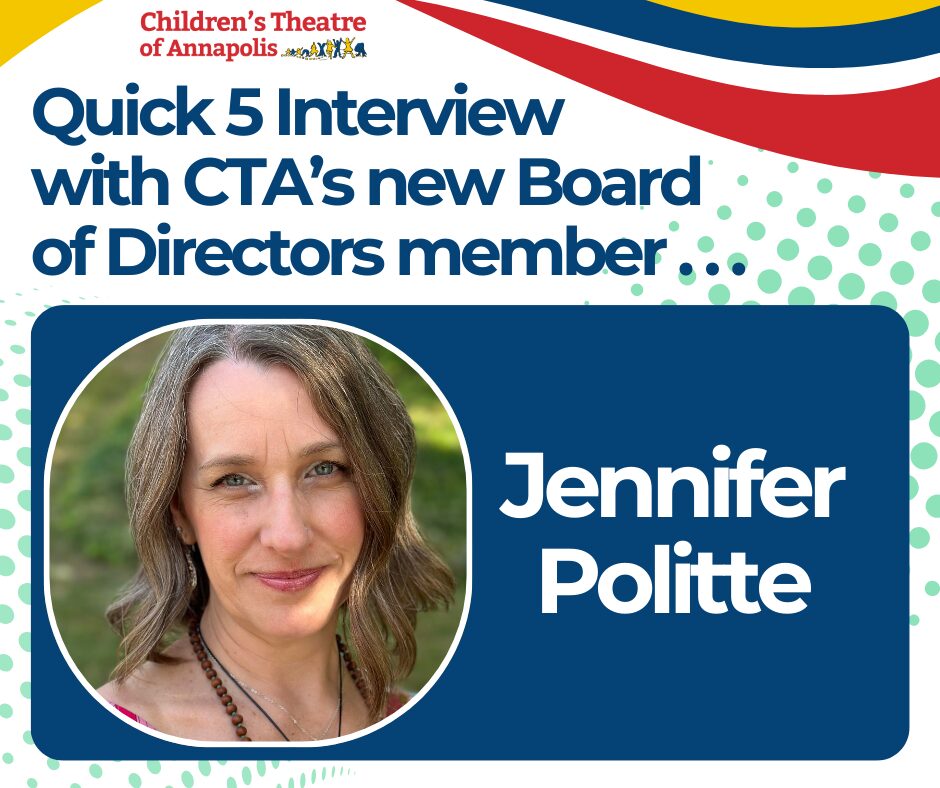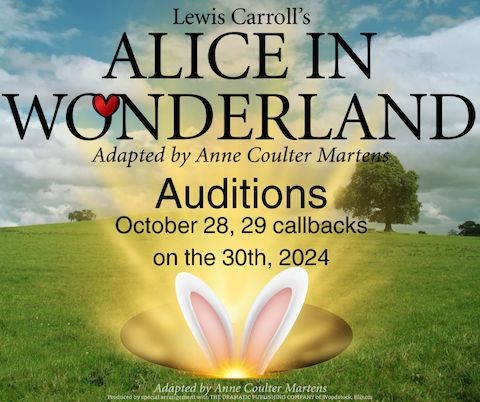| Alice |
Zoe |
Sommers |
| Cheshire Cat |
Peter |
Cardillo |
| White Rabbit |
Elliot |
Johnson |
| Caterpillar/Flower Rose/Courtier |
Sydney |
Switzer |
| March Hare/Gardener-Two of ♠️ |
Elena |
Hill |
| Frog Footman/Solider/Child #2 |
Heaven |
Bolling |
| Duchess |
Amari |
Cromwell |
| Cook/Flower Pink/Child #1 |
Mollie |
Ebinger |
| Humpty Dumpty/First Lady/Mock Turtle |
Clara |
Schurke |
| Gardener- Seven of ♠️/Gryphon |
Arden |
Wyrick |
| Soliders-Two of ♦️ |
Jeanie |
Defosse |
| Mad Hatter |
Emily |
Eugene |
| Dormouse/Child #3 |
Emily |
Steven |
| Queen of Hearts |
Liv |
Hurd |
| King of Hearts |
Brenna |
McGuire |
| First Lady(1 of 2)/Flower Yellow |
Alaya |
Bell |
| Executioner- Ten of ♣️ |
Braxton |
Stork |
| TweedleDee/Flower Violet |
Arthur |
Coelho |
| TweedleDum/Flower Blue |
Scarlett |
Hlavek |
| Gardener- Five of ♠️ |
Castin |
Dillon-Williams |
| Knave/Flower White |
John |
Lyons |
Thank You to the 41 volunteers that helped to make CTA’s Fall Festival an enormous success. Your efforts helped us raise nearly $3,000, which will go towards funding our Senior events and scholarships. On behalf of those seniors, I’d like to thank you for all of your support!
From auditions through closing night, 83 volunteers put in over 2,231.75 hours of service in support of Tuck Everlasting at CTA! Your generosity with your time and talent was an essential component in creating a beautiful production & guest experience. We are so grateful for your service, and could not put on the professional quality shows that we do without you. Thank You!
I say over 2,231.75 hours because this total counts only the hours scheduled, not the hours spent outside the theatre sewing costumes, thrift shopping for props, or putting in some unscheduled time fixing something that broke at a rehearsal. Our CTA Volunteers are unparalleled in their professionalism, kindness, and commitment. You are all PHENOMENAL!
Did you miss the chance to help with our Fall Festival and Tuck Everlasting? Need to earn some service hours for school or want to enjoy some behind the scenes time with your family creating magic? Fear not, we are already working on our next production, Alice in Wonderland, and have openings to help support fundraising and community events.
CURRENT VOLUNTEER OPENINGS:
- Circus Pop! performance on November 22nd. This is an excellent opportunity for students to earn service hours by taking tickets, selling concessions, or serving as ushers at the event.
o 5:30 pm – 9:30 pm – Concessions & Merchandise Sales
o 5:30 pm – 7:30 pm – Ticket Takers
o 8:00 pm – 9:30 pm – Clean Up Crew
- Set Building and Set Decoration for Alice in Wonderland. The following dates have been added to the schedule (see below). You do not need any special skills or exceptional artistic talent to join the crew. You need only be willing to work collaboratively with others to help create the whimsical, whacky world that is Wonderland.
o Set Build Days:
- Sunday, November 24th 9am-Noon
- Monday, November 25th 5:30pm-8:30pm
- Sunday, December 1st 9am-Noon
- Sunday, January 5th 9am-Noon
o Set Decoration Days:
- Monday, December 2nd 5:30pm-8:30pm
- Monday, January 6th 5:30pm-8:30pm
- Sunday, January 12th 9am-Noon
DFC’s Holiday Cabaret on December 7th. Another opportunity for students that need service hours. We are looking for Front of House volunteers and Tech Crew (light board, sound board, sound runner) assistance for this event.
o 10:00 am – 1:00 pm – Set Up Crew
o Noon – 6:00 pm – Tech Crew (light board operator, sound board operator)
o 1:00 pm – 3:00 pm – Ticket Takers
o 5:00 pm – 6:00 pm – Clean Up Crew
Interested in volunteering with any of these events? Here’s how you can get involved.
All volunteer scheduling is done through Volunteer Scheduler Pro. Unless you are already registered through the VSP system, you will need to register and login to sign up to help. You can find the volunteer registration form using THIS LINK. Please Note: You will only see volunteer slots available for the jobs and shifts that you select when filling out the registration form. Please choose ALL areas in which you have some interest, and when completing the Shift Preferences section, do not click the button to be scheduled only at these shifts. Choosing that option will result in you being unable to see and sign up for many of our volunteer opportunities. You will not be scheduled by CTA without being contacted for approval. We do not use the automatic scheduling feature of this software. You are in control of your schedule!
Adults (everyone aged 18 years and over) are required to have an up-to-date background screening through Anne Arundel County Department of Recreation and Parks. You can determine if you have this screening by looking for your name on this list. If your name is not on the list, you will be required to complete that screening BEFORE volunteering at CTA. The background screening form is available at this link.
COMING SOON:
Be a part of the wonder this season by joining the Alice Crew (costumes, props, stagehands, lighting, & sound) or volunteering in the front of house (ticket taking, ushering, concessions sales). Front of House volunteers are able to watch the show for FREE in reserved seats in the back of the house.
If you would like to be a part of CTA’s production of Alice in Wonderland, please register as a volunteer (if you have not done so already this year), and sign up to help using THIS LINK. If you have any questions about volunteering at CTA, please contact our volunteer coordinator, Amy Schropp, at volunteers@childrenstheatreofannapolis.org.
YOU ARE WELCOME HERE!
Thank you for considering becoming part of the CTA family!

We did a Quick 5 interview with Allyson Tierney, the Director for CTA’s upcoming production of Tuck Everlasting the Musical. The show is based on the novel “Tuck Everlasting” by Natalie Babbitt.
SYNOPSIS: What would you do if you had all eternity? Eleven-year-old Winnie Foster yearns for a life of adventure beyond her white picket fence, but not until she becomes unexpectedly entwined with the Tuck Family does she get more than she could have imagined. When Winnie learns of the magic behind the Tuck’s unending youth, she must fight to protect their secret from those who would do anything for a chance at eternal life. As her adventure unfolds, Winnie faces an extraordinary choice: return to her life, or continue with the Tucks on their infinite journey.
CTA: How did you get your start in theater?
ALLYSON: I grew up in a small town in Pennsylvania and the highlight every year was attending the high school theatre productions. I remember seeing a production of Godspell and wanted so badly to be on that stage! I auditioned as soon as I could and, after a few tries (well lots of tries), I got cast in a production of West Side Story. That was it for me!
CTA: What attracted you to want to direct this production?
ALLYSON: I feel like things come along in life for a reason. If you know me, you know that musicals aren’t necessarily my favorite. Don’t hate me!! I am naturally drawn to non-musicals, especially the classics. As Executive Producer for CTA, it is my job to research the chosen plays, help create the budgets, and assess the needs of the play. While diving into Tuck, I fell in love with this story and its message. My dad died last year and, as you can imagine, it was a difficult time for me. At its core, this play is a celebration of life. It encourages us all to live our lives to the fullest and celebrate life even when we are experiencing loss. After losing my dad, I needed that reminder and this play did that for me.
CTA: What makes your team’s production of ‘Tuck Everlasting the Musical’ unique?
ALLYSON: We are not approaching this show differently or uniquely. We want to tell this story authentically and with purpose. We have worked very hard to create a production that everyone can relate to and learn from.
CTA: What is the most important theme of the play? How do the character, blocking, and design choices help explore that theme?
ALLYSON: This production is a journey of self-discovery, a celebration of the beauty of life, and a reminder that even in our fleeting moments, we can create something extraordinary!
Visually, I wanted to focus on the contrasts in the play. For example, Winnie’s house is very crisp, sterile, and in sharp contrast to the Tuck home which is very homey and cluttered. We emphasized the contrast with colors as well, using browns and neutrals for the Tuck family, bright vibrant colors for the fair and carnival workers, and light blues for Winnie to emphasize her innocence and cheerfulness.
CTA: If the playwright were to cut the script, what line or moment would you fight for?
ALLYSON: “You don’t have to live forever, you just have to LIVE!”
CTA’s Tuck Everlasting the Musical runs October 18 through November 3, 2024 (weekends only). Run time is approximately 120 minutes (2 hours) plus a 15-minute intermission. Special events include a Relaxed Performance on Saturday, October 26 @ 11:00 a.m. and an ASL-interpreted performance on Saturday, October 26 at 4:00 p.m. Get your tickets at cta.ticketleap.com. Questions? Email boxoffice@childrenstheatreofannapolis.org.
CTA conducted a Quick 5 interview with new CTA Board of Directors member, Jamie Levine, to introduce her to our community.
CTA: What motivated you to join CTA’s Board of Directors?
JAMIE: I volunteered for The Little Mermaid and music directed Descendants last season and I fell in love with the CTA family. I wanted to join the board because I want to make an impact and make a difference in young artists’ lives and help the organization continue to grow.
CTA: What special skills/experience do you bring to this position?
JAMIE: My expertise as a vocal technician, a music director, and a singer.
CTA: How has theatre impacted your life?
JAMIE: In addition to being a voice teacher and a music director, I am a performer in opera and musical theatre. I have been involved in many amazing productions, including a few world premieres. I have met some of my best friends in theatre and I love the community that I have built through theatre.
CTA: Why do you think theatre education is important for our youth?
JAMIE: Theatre education is essential because it teaches kids important tools such as collaboration, working as a team, being a part of a community, and creating something special.
CTA: What is your favorite play or musical?
JAMIE: Usually my favorite musical is whatever I am currently working on with students, music directing, or performing.

Level 1
Black Box & Lobby Naming Rights $300,000 or 2 available at $150,000 each
Level 2 Classroom Naming Rights $50,000 – 2 available
Level 3 Rain Garden Naming Rights $25,000 – 1 available
Level 4 Meditative Garden Naming Rights $25,000 – 1 available
Fall is quickly approaching, which means it’s almost time for the CTA Fall Festival and our first mainstage production of the “Season of Discovering Wonder!” Wonder how you can help support this family friendly community event and a production that is shaping up to astonish our audiences? Wonder no more.
CTA is actively seeking volunteers and contributions to make our Fall Festival another fun filled family night out at our theatre. Volunteers are needed to help set up for the event on October 3rd and 4th, and to provide support in the form of ticket taking, running games, selling concessions, serving as parking attendants, and more on October 4th. Interested in volunteering for this event, please register as a volunteer and sign up to help using THIS LINK.
Unable to make it to the theatre to help, but still willing to support this event that helps us raise funds for our senior scholarships and end of season celebrations? Please consider donating some of the supplies that are essential for the success of this event through our Amazon Wishlist found using THIS LINK.
We hope to see you, your family and your friends at the CTA Fall Festival being held on Friday, October 4, 2024 from 5:30 to 9:30 pm! Tickets are available for purchase HERE.
CTA is also looking for crew members and volunteers to support our production of Tuck Everlasting. This beautiful show, based on the award-winning novel by Natalie Babbitt, will take our audiences on a captivating and powerful journey of discovering what it really means to live.
Be a part of the wonder by joining our crew (set building, set decoration, costumes, props, stagehands, lighting, & sound) or volunteering in the front of house (ticket taking, ushering, concessions sales). Front of House volunteers are able to watch the show for FREE in reserved seats in the back of the house. If you would like to be a part of this production, please register as a volunteer and sign up to help using THIS LINK.
If you have any questions about volunteering at CTA, please contact our volunteer coordinator, Amy Schropp, at volunteers@childrenstheatreofannapolis.org.
YOU ARE WELCOME HERE!
Thank you for considering becoming part of the CTA family!
Can you believe it? Another season is starting here at CTA!
We are diving into the deep end of our 65th year, with a Season of Discovering Wonder!
This year promises to be another eventful year in the storied history of CTA! The long awaited build out is anticipated to start mid Q4 2024.
With an eye on the future and focus on the community, the Capital Campaign, Growing our Reach, has kicked off!
Some quick information about the Capital Campaign:
We are thrilled to share some exciting news with you about a significant new chapter in the life of Children’s Theatre of Annapolis. It is with great enthusiasm that we announce the public kickoff of our capital campaign, Growing Our Reach, dedicated to expanding CTA’s existing home as well as building a stronger arts community in Annapolis and the State of Maryland.
With the transformation of our existing annex into a state-of-the-art multipurpose arts center where students ages 5 -18 will learn dancing, acting and singing, CTA positions itself as a regional arts and culture leader. This campaign expands CTA’s campus to include two new classrooms as well as black box theater that will seat more than 75 patrons.
Together, we can help our students achieve extraordinary things and give them a safe space to learn, explore, create, and express themselves. We invite you to join us in this once-in-a-lifetime opportunity by making a generous gift to our Growing Our Reach Campaign. Help us bring this facility and vision to life.
Please join the campaign and help CTA realize this vision!
Capital Campaign Donation
Building on our Capital Campaign, if you have a business or a targeted donation that there would be potential interest in, we have a robust sponsorship program. We have over 6,000 people come through our doors annually. With the annex build-out, this number will only increase! Sponsorship with CTA is a great idea for any local business or business that is child-focused. See the link for sponsorship opportunities.
Sponsorship
Stay up to date with everything CTA by following these links:
News and Events
Education and Programs
2024-2025 Season
A Season of Discovering Wonder!
Tuck Everlasting the Musical, October 18th to November 3rd, 2024
Alice in Wonderland, February 7th to February 23rd, 2025
Finding Nemo, Jr., May 16th to June 1st, 2025
Thank you for reading!
From our Family to yours,
Michelle Bruno, President, Children’s Theatre of Annapolis Children’s Theatre of Annapolis
CTA is holding a family friendly Fall Festival on Friday, October 4, 2024 from 5:30pm-9:30pm and we need you to sell your wares! Tables are available to rent for $25.00.
The Fall Festival will have:
A Family Friendly Haunted House
Face painting and Arts and Crafts
Food Trucks
Live Music and Open Mic
Seasonal treats and more!
We are expecting 200+ people to come to this event. Please contact April Forrer at aprilforrer@childrenstheatreofannapolis.org for more information and to sign up.
Quick 5 Interview with new CTA Board of Directors member, Jennifer Politte
CTA: What motivated you to join CTA’s Board of Directors?
JENNIFER: CTA has given a lot to our family AND I believe deeply in what CTA stands for in the community. I wanted to give back to CTA and joining the BOD is my way of doing that.
CTA: What special skills/experience do you bring to this position?
JENNIFER: I love theater! I was a professional dancer and have been choreographing for kids and teens for several years. I also love to create art through painting, costume design, drawing, etc. Planning and organization are also a few things I enjoy doing.
CTA: How has theatre impacted your life?
JENNIFER: Theater has provided a place for expression and creativity, as well as a sense of discipline that has served me my whole life. I feel like theater and all creative arts have a way of reaching those places in us that we all share and can bring us closer together.
CTA: Why do you think theatre education is important for our youth?
JENNIFER: I have seen over and over how theater can reach some kids in a way that nothing else can. Theater provides a community where kids can fully be themselves. Whether it is onstage or backstage, I find that theater gives kids a place where they can grow, explore and discover who they are.
CTA: What is your favorite play or musical?
JENNIFER: I have to pick just one?!? I’d have to say… “Chicago” and “A Chorus Line”
Children’s Theatre of Annapolis
Alice in Wonderland
What is Expected When You Audition for a Non-musical Production? Click here!
Alice Audition Pieces. Click here! NOTE: Actors do not need to memorize these poems. If the like the “Jabberwockey” they should pick a section of the poem to read, not the entire poem. The director is looking for a grasp of the language and storytelling. Actors should be comfortable with their selected piece and not doing a cold read at the audition.
Alice in Wonderland Character Description, In order of appearance. Click here!
Here is a link to the Registration form. Here is a link to the Sign up Genius.
